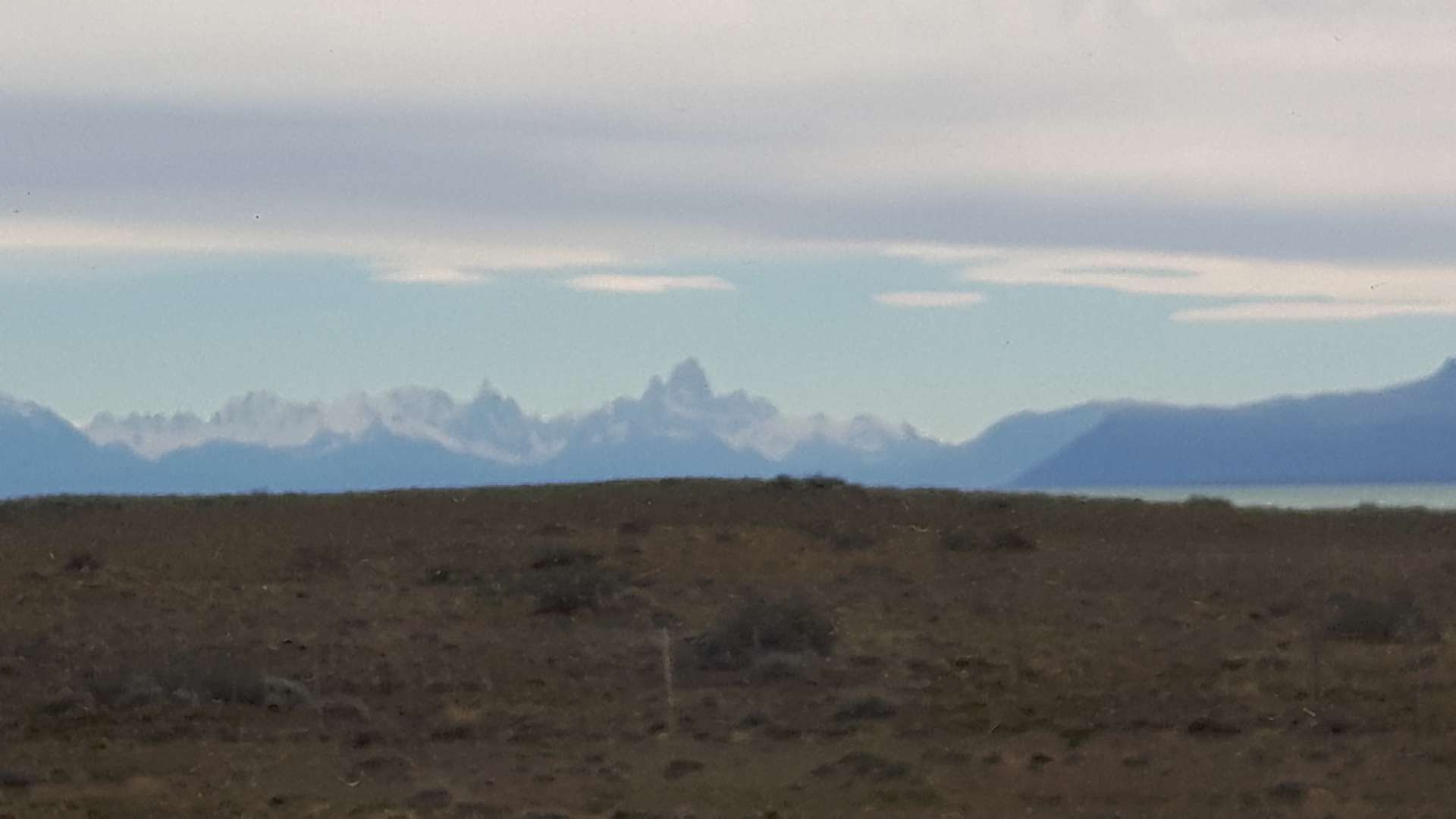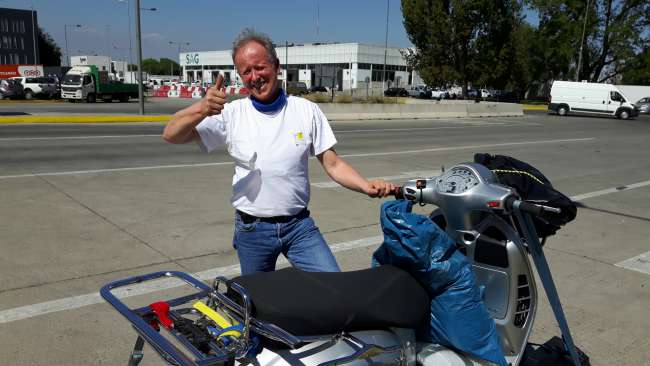ab 02.09.: In the living container 20 km before Puerto Lopez
Gepubliceerd: 05.09.2017
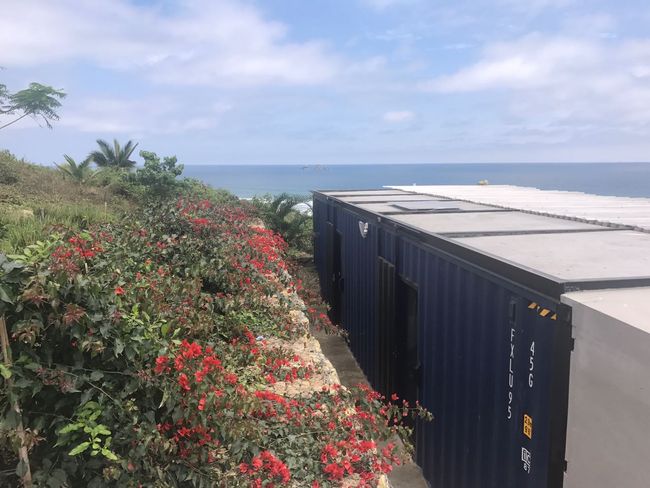
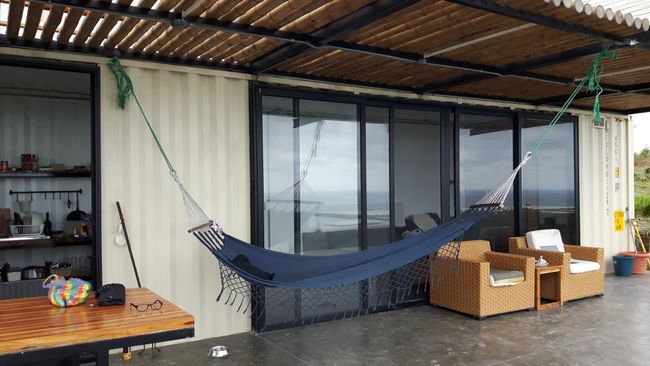
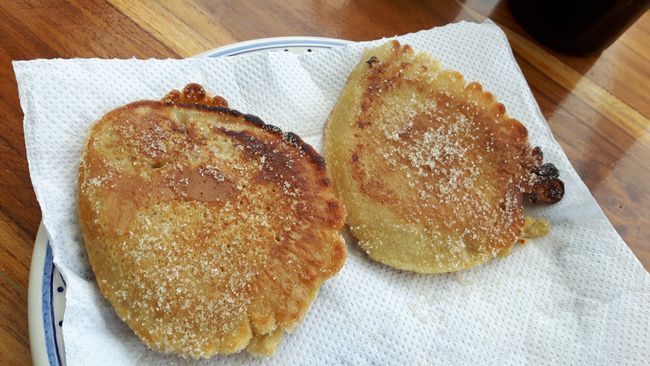
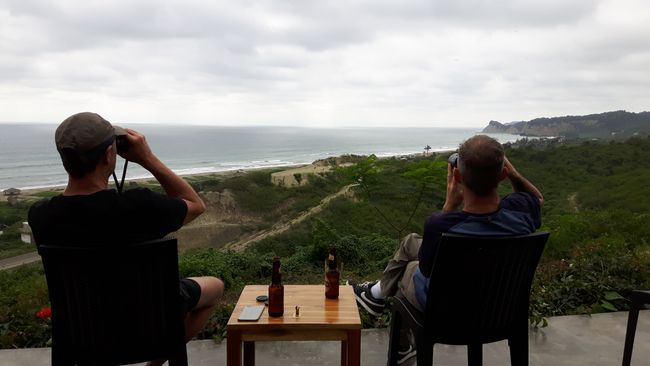
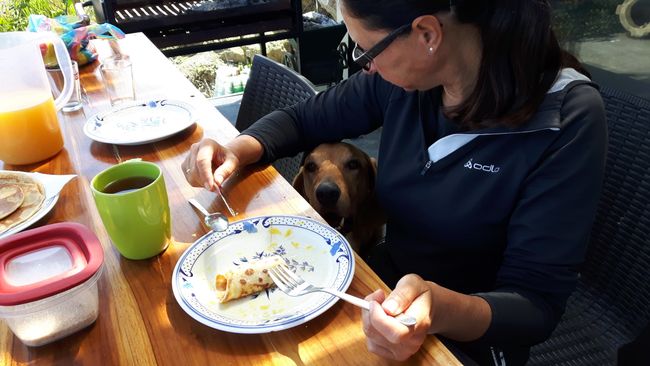
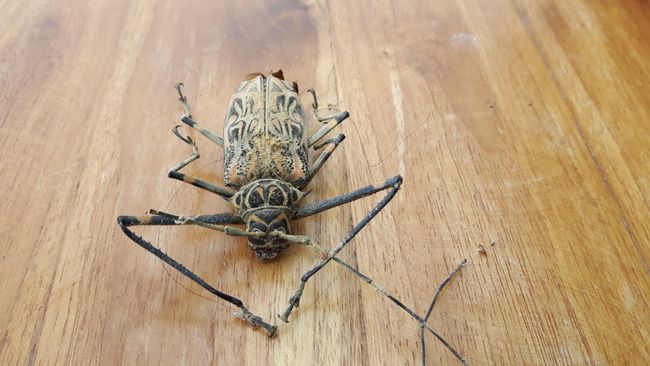
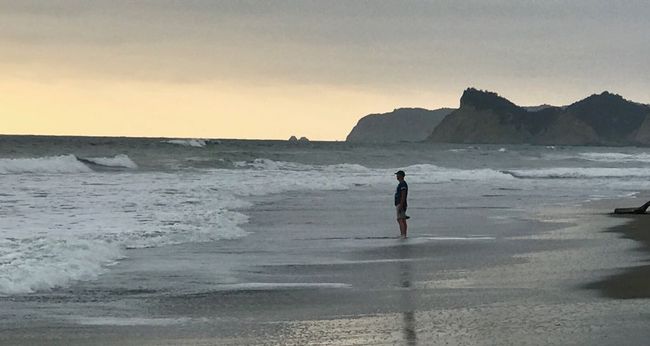
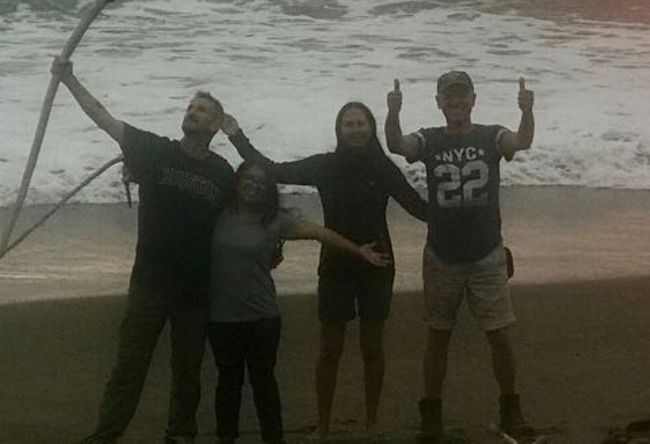
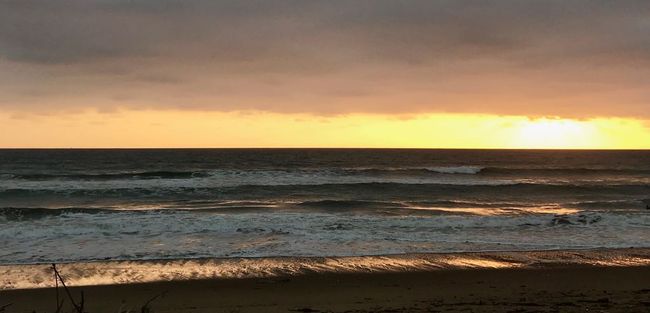
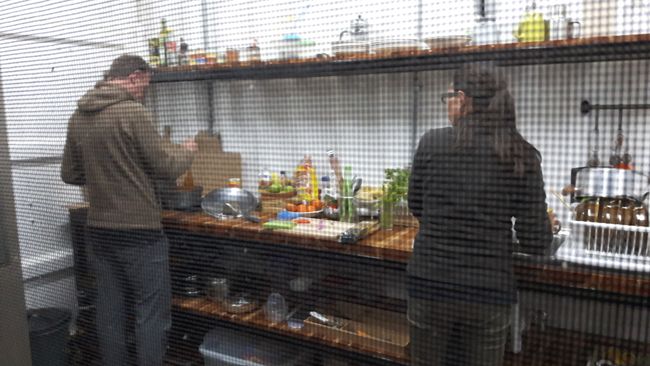
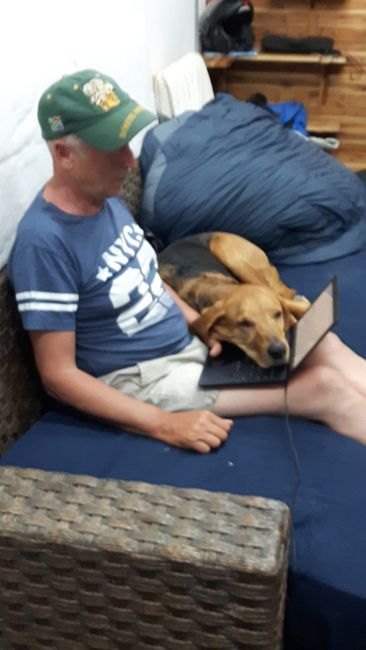
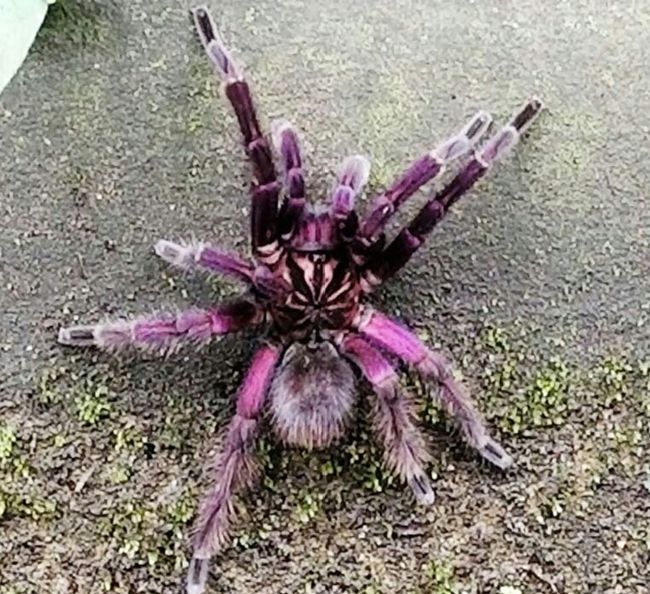
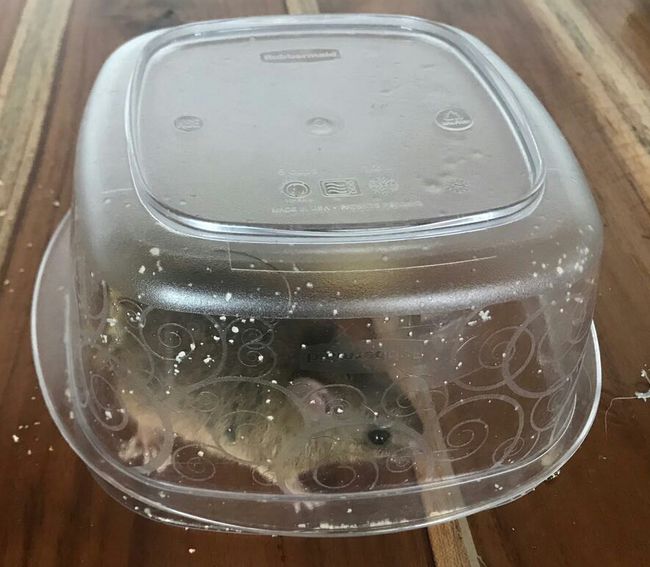
Abonneren op de nieuwsbrief
02.09.
The night in the hotel is over at 3am.
I have my window on the fourth floor facing the courtyard and I can witness the return of the guests from the city up close. They are still drinking nightcaps and playing loud music from Bluetooth speakers powered by their smartphones.
At 07:00am, the receptionist knocks on my door, asking me to move my vespa to make room for a car coming out of the garage.
I do him the favor, but I still allow myself another one and a half hours of sleep.
Today, I have 400 km ahead of me, which is estimated to take over 6 hours of travel time. 8 hours with breaks would be a more realistic estimate.
Sandra and Rolf have rented two 40m2 containers located 20 km before Puerto Lopez, overlooking the Pacific Ocean. One is for sleeping, and the other is for cooking and living. Containers are usually windowless, and Rolf has sent me a photo that unfortunately confirms this assumption.

A closed system
Nevertheless, I intend to visit them. As an alternative, there are hostels or campsites everywhere.
Before breakfast, I quickly upload my blog and then order fried eggs with onions and cafe con leche. The price is very moderate. I need to get used to the new currency and check the euro amount on my currency converter from time to time.
It's Saturday, but the traffic is manageable. It's also noticeable that the honking signal is not overused here and that drivers actually react to it. I experienced this yesterday when a frantic SUV driver honked at a yellow taxi. The taxi immediately rolled down its window and threw rude words at the SUV driver, who responded by honking the red light phase with a prolonged sound. In Tumbes, he wouldn't have received any attention at all.
The weather is cloudy, and the temperatures have increased compared to Lima. I'm making good progress and soon find myself back in the banana plantations. The towns are lined with stands selling fruits. Even on the bumps - now that the clouds have cleared - fruit vendors stand in the blazing sun, selling pineapples in handy pieces.
Everything is green and fertile. I realize that two seasons are happening simultaneously here. Spring with its fresh green and autumn with its corn harvest. I see huge trees with massive crowns that remind me of cypresses and serve as boundaries for the fields.
I'm on schedule and rapidly approaching Ecuador's largest city. Before that, I take a short break to refuel and hydrate, and then dive into the hustle and bustle of the city. What a difference from Lima!!
I'm reluctant to adapt to the civilized driving style of Ecuadorians, but on the other hand, I enjoy the relaxed driving style that surrounds me. Multitasking is required again, constantly monitoring the navigation display, which is now harder to read due to sun reflection, and keeping an eye on the challenges of the road traffic. It's going well, and then I cross a large and wide river, the Rio Guayas.
Guayaquil presents itself as a city with 2.5 to 3 million inhabitants, resembling North American skylines, a city that leaves a well-organized and efficient impression on me and keeps its streets clean.
I don't pass by run-down neighborhoods here, but I notice a large settlement of uniform houses crowded on small plots, with no trees, no bushes, and helplessly exposed to the tropical, humid heat.
Here too, the port is a significant economic factor for this city.
I slowly leave the city behind. But I know I will visit it again because there is a Vespa dealership with a workshop here. I owe this information to Rolf, as well as the information that the moto-taxis are equipped with Piaggio engines. There is an affinity for my Vespa here, and I want to take advantage of that.
Finally back in the countryside, I stop at a fruit stand and satisfy my hunger with bananas and tangerines. I notice a bright yellow fruit again, which the vendors have stacked in pyramid shape and bring to waiting cars. I saw it right after my arrival in Ecuador. The color looks so artificial that I classified it as yellow plastic balls. Now that they are in front of me, my curiosity is piqued, and I try one. It tastes like a grapefruit, but its peel is smooth. The vendor calls it 'orangas,' but Cassandra, who, together with Jeff, also visits Sandra and Rolf, should know. She is a native Ecuadorian but has no idea about the name. Google is also overwhelmed.
Then I continue non-stop towards the coast. The sun has disappeared behind a cloud cover, and the absence of the foam padding becomes noticeable, but it is ignored. Along the way, while refueling, I meet another motorcyclist who tells me that there will be an international Vespa meeting in Guayaquil on September 24th.
It can't be far now. N 40 has now turned into N 15, which connects the coastal towns. And there are many of them. These last one and a half hours require a lot of patience. Bumps, bad roads, agitated car drivers overtaking in closed towns, and my fatigue are challenging me in the last 50 km. However, the scenery becomes more scenic, with forests and the coastal road leading through hilly terrain, the road becoming narrower and more curvy, the scent of resin in the air. It seems that it has rained here recently. The forest breathes fresh forest air. My GPS tells me it's only 3 km more - no house or container in sight, and then comes the long-awaited information: You have reached your destination. 'In the middle of the road...?' I think, roll out, and take in everything around me. Finally, I call Rolf, but he doesn't answer his phone. A few kilometers back, I saw a hostel that can serve as plan B for me. I'm about to put this plan into action when a black Defender with a Stuttgart license plate drives past me. A short greeting, and then I follow him onto a very unpaved road, with deep tracks and tight curves leading steeply uphill. But the Vespa handles it effortlessly, and we are there in no time.

Not dark and stuffy, but flooded with light
Jeff, Cassandra, and Bruno climb out of the car from behind. They have been shopping in Puerto Lopez, and Sandra has been feeding sea lions at the harbor.
The windowless containers appear in front of us, with large windows overlooking the vast Pacific Ocean. There is a terrace that spans the entire front, a fully equipped kitchen, and a cozy corner for me.
My first beer since Lima, my first cigarette since Cusco. Both taste good, and I know from experience that I can easily give them up again. There are grilled chicken thighs, juicy beef fillets, and delicious salads.
But then, I'm glad when I can stretch out and relax.
1,600 km in 6 days.
03.09.
I wake up with an unobstructed view of the ocean. Since we are out of bread and butter
and only Bruno is awake, I hop on the Vespa and drive to Puerto Lopez. The smartphone stays here. Somehow the landscape and the narrow road with ups and downs, lots of lush greenery on the edges, and many curves remind me of Ireland.
It is Sunday, but it feels like a weekday in Puerto Lopez.
I buy toast and butter, refuel, and on the way back, I don't immediately find the entrance to our containers. The smartphone is left on the shelf. How can I make myself noticed? Then it becomes clear to me for the umpteenth time how dependent we have become on our smartphones in terms of thinking.
Fortunately, I can remember a yellow hostel - house that I just passed. I turn around, slowly drive down the street, and find the entrance.
As I drive up, the scent of freshly baked pancakes greets me. And indeed, when I enter, Sandra is making delicious Swabian apple fritters in Ecuador. And not just two for everyone, but plenty!

It's another one of those relaxed days that I experience with Sandra and Rolf at Lake Titicaca. Just doing nothing, looking at the sea, and waiting for the jumping whales.
04.09.
The second day in the container shows a scattered sky, promising a sunny day. The day doesn't differ much from the previous one.

He is an integral part of the community. He knows where something is happening and where it's not
I write an email to the Vespa dealership in Guayaquil to inquire if they have the Vespa parts that I want to take with me just to be safe.
Afterwards, I go to the deserted beach. There is a small restaurant there that serves seafood dishes. Jeff, Cassandra, Rolf, and Sandra have already gone ahead to swim, but the allure of the restaurant is too strong. Spaghetti with shrimp is on the menu, and the chef didn't skimp on the shrimp.
This time, I saw the whales jumping for the first time. They must be quite tall and very large for the splashing water to be visible from here.
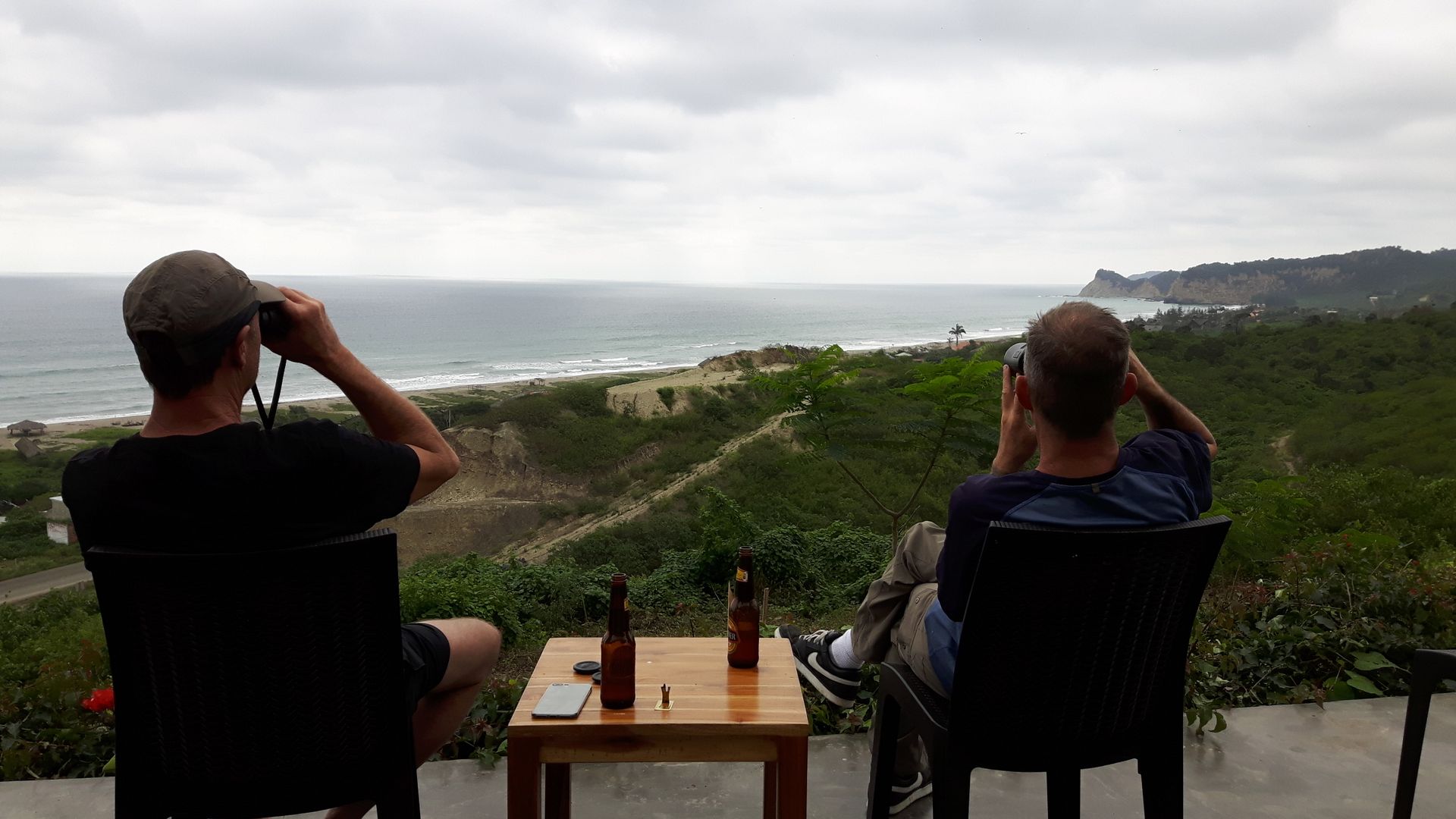
Rolf and Jeff scan the horizon for jumping whales
Wikipedia says that the diving record is 2,900 meters. They can stay underwater for up to an hour and 40 minutes and utilize 80 to 90% of the inhaled oxygen, while humans only use 15%.
And the reason whales jump has to do with the noise underwater. If they can no longer communicate, they use the water splashing, which travels far underwater.
We are repeatedly flown over by pelicans throughout the day, or rather sailed over, as they use the thermals rising from the sea. Then there are frigatebirds that fly over our containers in small flocks. They have a wingspan of up to two meters and only occur in the tropics and subtropics. It's an impressive sight. I haven't taken a photo yet.
This day also didn't want to boast about challenges but was content with living in the present and enjoying life.
05.09.
Today is study time with maps.
And with that, the decision on how to proceed is made. After these 1,600 km heading north, I don't feel like going further north for now. But after a few days of rest, curiosity and the thirst for adventure return.
And of course, the equator (Mitad del Mundo - the middle of the world) has its own significant allure.
We are currently on the second latitude. It wouldn't be a good idea to ignore the last two latitudes and start heading southeast now. So, Quito is on the program.
It doesn't really entice me, and then taking the return route to Lima, which means driving the same way back. Jeff raves about the route through the mountains, saying it's paved but very curvy and with many steep inclines. I'm torn. It's only 4,000 km to the Brazilian border on the coastal road. My task for today and tomorrow is to find out the actual number of kilometers if I ride through the mountains to the Brazilian border. From Rio Branco via Transoceanica, it's still 4,800 km until Montevideo, where a detour to Nora in Salvador de Bahia and a visit to Rio de Janeiro - depending on the time budget - are still on the itinerary.
Other than that, the day adapts to the general idleness.
The Pacific has a peculiar attraction. It repeatedly makes us pause in our 'daily routine,' look out over it, and watch the whales jump. The monotonous sound of the waves contributes to our resistance against becoming active.
For me, in this regard, a useful day as the decision for Quito has been made, and exciting tours through the mountains of Ecuador await me.
06.09.
'They must be getting bored,' some may think. 'No,' is the answer.
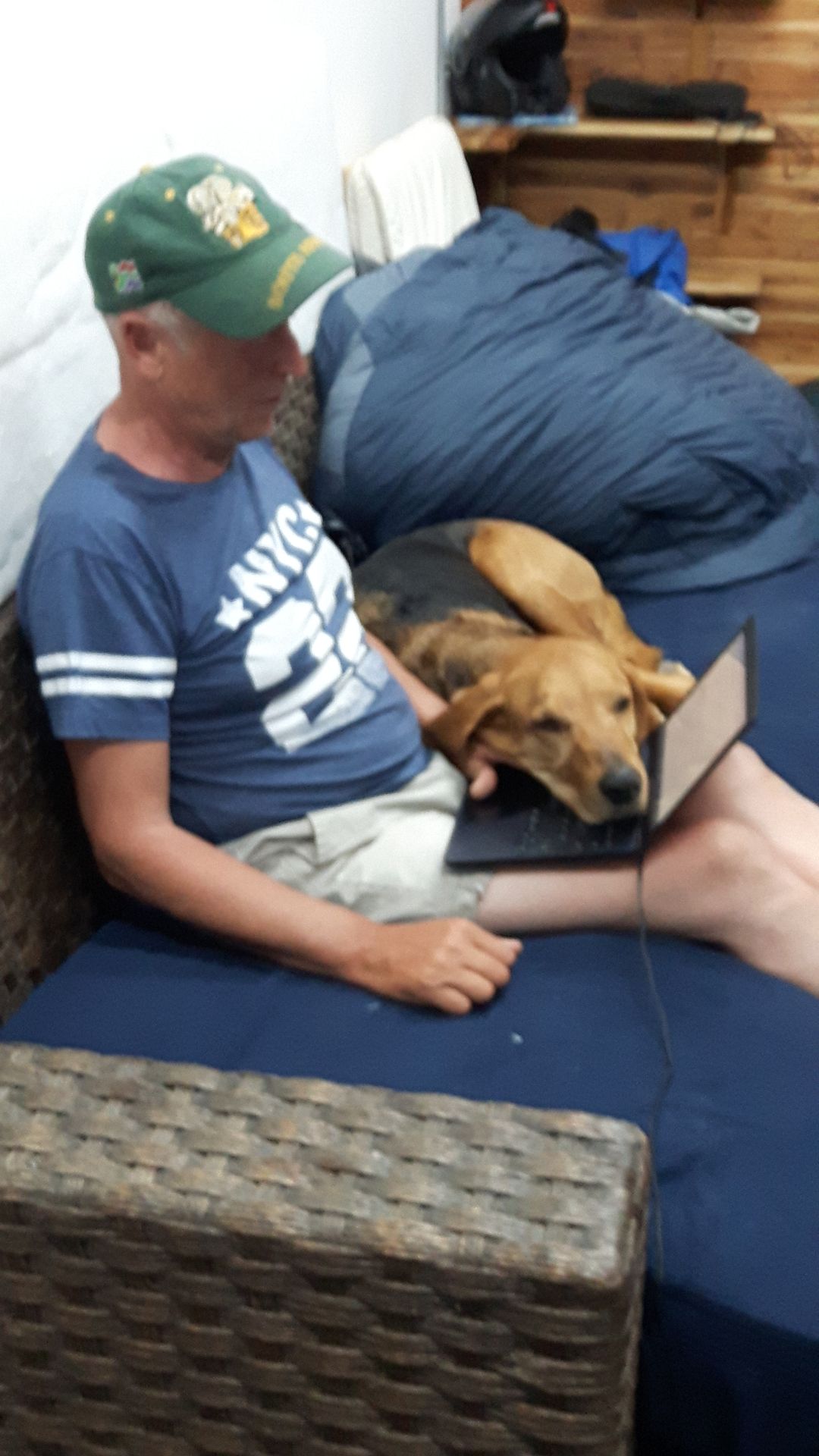
Bruno sabotages my tour planning
Today, I finalize my route planning. Using Excel, I write down the stages, kilometers, and the estimated time required and by early afternoon, I know the route and the number of kilometers that await me until the Brazilian border: 5,300 km. Now I can decide what to do, and in addition, I have the option to switch to the coastal road along the way, heading east from Lima through the Andes. In total, I still have over 10,000 km ahead of me...

A bit battered. Thanks to active mice, it was brought to light during the kitchen cleaning

Photo: Rolf L.
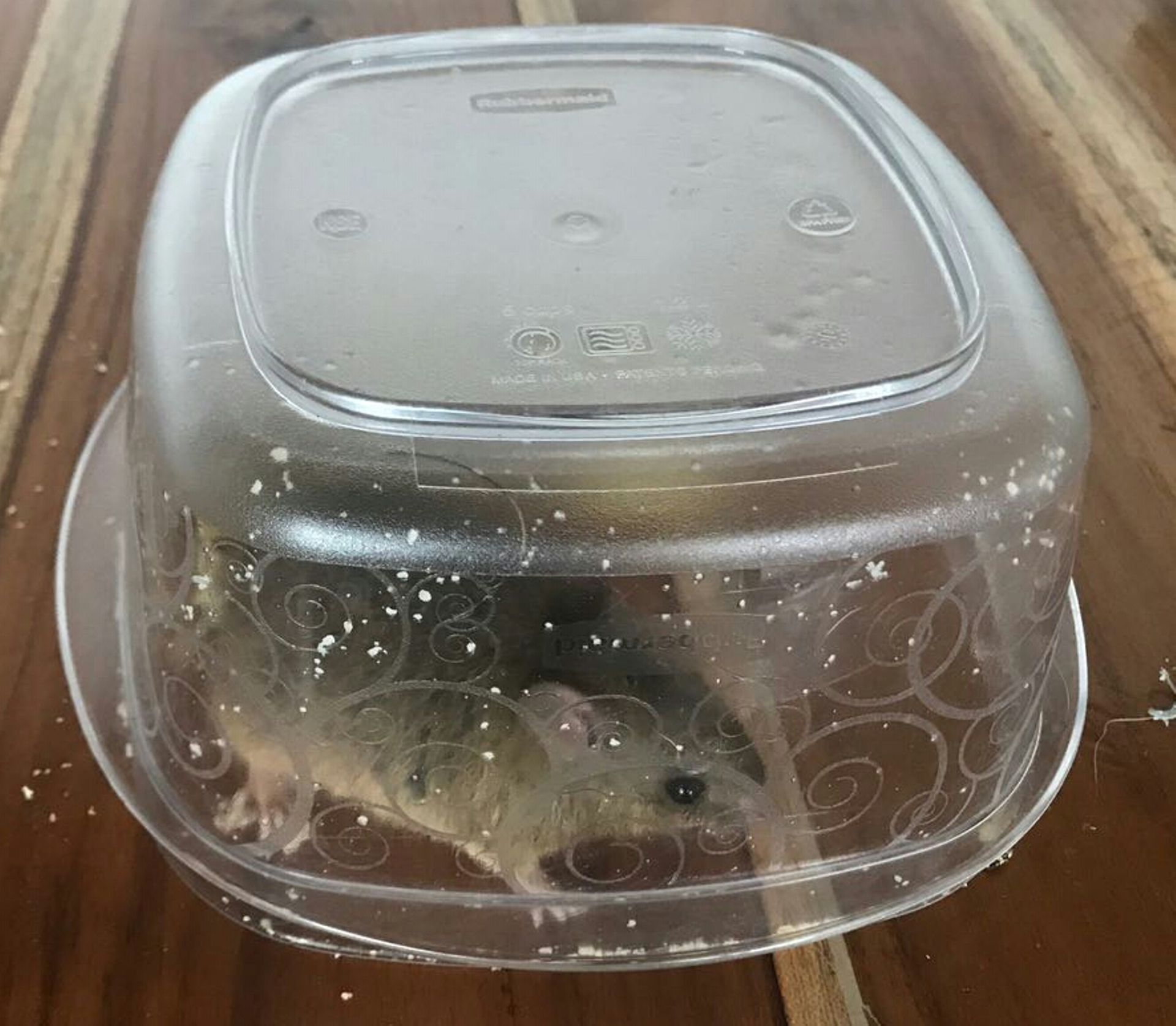
Not as fat as the ones I saw, caught after my departure
Photo: Rolf L.
Today is Wednesday, and Rolf found out that on this day, you can get two pizzas for the price of one. The restaurant is very cozy. We sit on a small covered terrace between green gardens. We order a giant vegetarian pizza - the best one I have had here in South America. The second one is served only after the first one is finished. Fresh and hot!
Afterwards, Bruno needs to move - and so do we.

Reminds me of Caspar David Friedrich... Photo: Rolf L.
The beach is deserted, only a few surfers can be seen in the distance. On the horizon, we first see the spouts and then the jumping whales. They must be big and heavy animals because we can see the splashing water very well even from this distance. And there must be several of them because they keep announcing their presence with new spouts.

From left: Jeff, Cassandra, Sandra, and I - Rolf takes the photo
07. 09. to 09.09.
Tomorrow, it continues.
A week of pure relaxation lies behind me. The last two days were just as great as the days before.
In contrast, last night already offered a bit more excitement.
There are mice that have enjoyed the food during the night. Sandra noticed and moved all the edible items out of reach. But the mice didn't see it that way and worked hard during the night, trying to make their way through glass containers and thick plastic walls with noisy effort. In addition, there was a completely new sound for me, sounding like smacking kisses. Eventually, I fell asleep - the sound of the Pacific waves simply drowned out the disturbing noises. (The kissing noises come from a gecko that eats mosquitoes.)
Today, the day may have differed in that some things related to my departure need to be taken care of. Taking the laundry to the laundry service, organizing my belongings, packing, and inspecting the Vespa.
Tonight, we were supposed to have llama on the grill, but we were taught otherwise: anyone who only associates punctuality and reliability with German virtues would have changed their opinion today. Yesterday, when we were at the market in Puerto Lopez, we ordered the meat for today at 10:00 am. I didn't arrive until 11:30 am. The butcher is already sitting in his plastic chair, sharpening his knives for the next day. When he sees me, he shakes his head from a distance. I sense something bad is coming and hear with horror: no hay mas. There is no more meat. He sold it. 10:00 am was agreed. So, others can also expect punctuality and reliability (to be demanded).
Therefore, tonight we will have spaghetti with a very tasty tomato sauce prepared by Rolf - with real tomatoes and perfectly seasoned.

Perfect teamwork - behind mosquito nets: Rolf and Sandra
When I drive to Quito, I have mixed feelings: the weather there is just bad, it gets cold and wet. It's located at an altitude of 2,800 meters in a basin where rain and fog tend to linger.
Irma, the hurricane that hits Florida and an earthquake in Mexico that sends tsunami warnings down to Ecuador, is another reason. Although it's only about a meter-high waves, it extends its greedy fingers towards us...
Jeff's parents live in Florida. It's flooding there. The freeways are congested, and the airports are overwhelmed. His parents are prepared. They have a 'carhouse' that is equipped for all eventualities, from a generator for electricity to freeze-dried food and water. Irma has reached the highest level. It would be expected tonight.
As I sit here and write, I see something thick and gray whizzing along the wall in my peripheral vision, briefly pausing, and then aiming for a hole in the mosquito net of the entrance door with pinpoint accuracy, thankfully moving away. Maybe it's looking for another food source? That will be a long way, as there are no neighbors here.

Abonneren op de nieuwsbrief
Antwoord
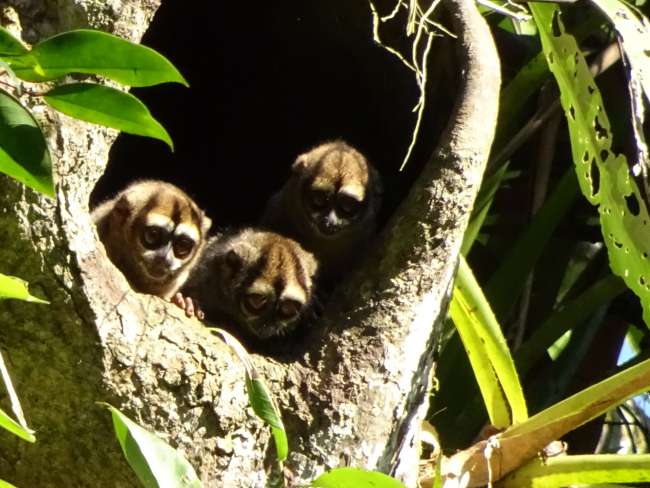
Reisverslagen Ecuador
